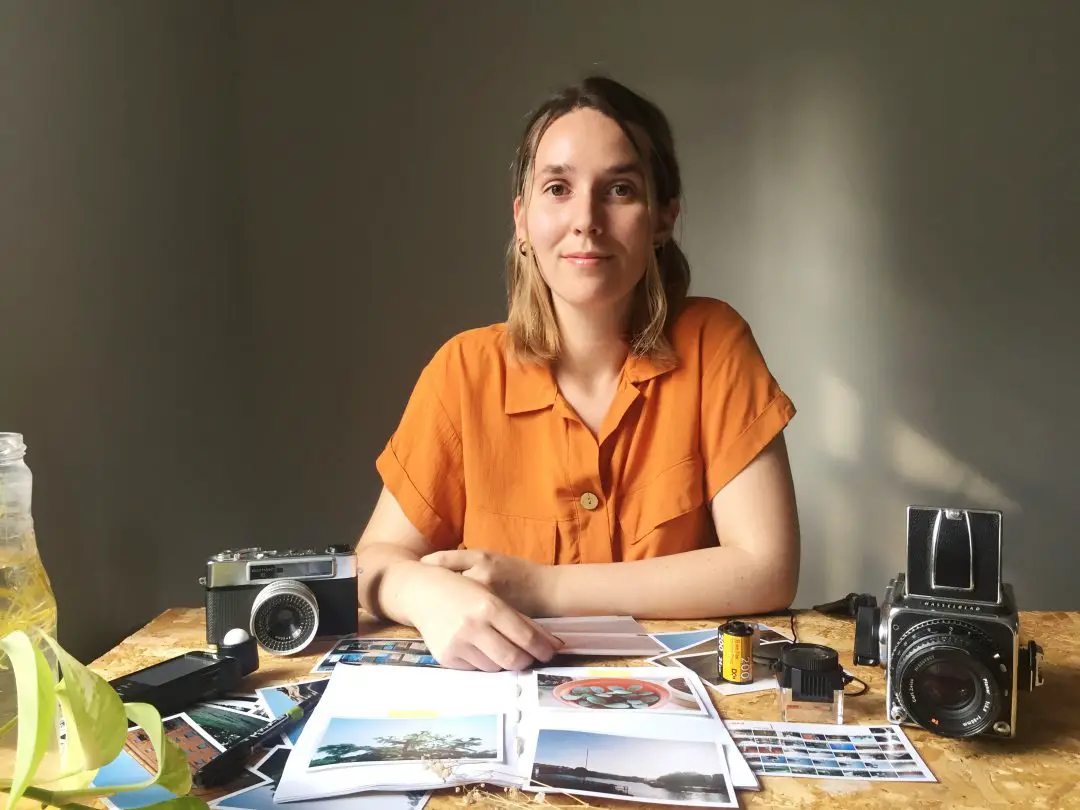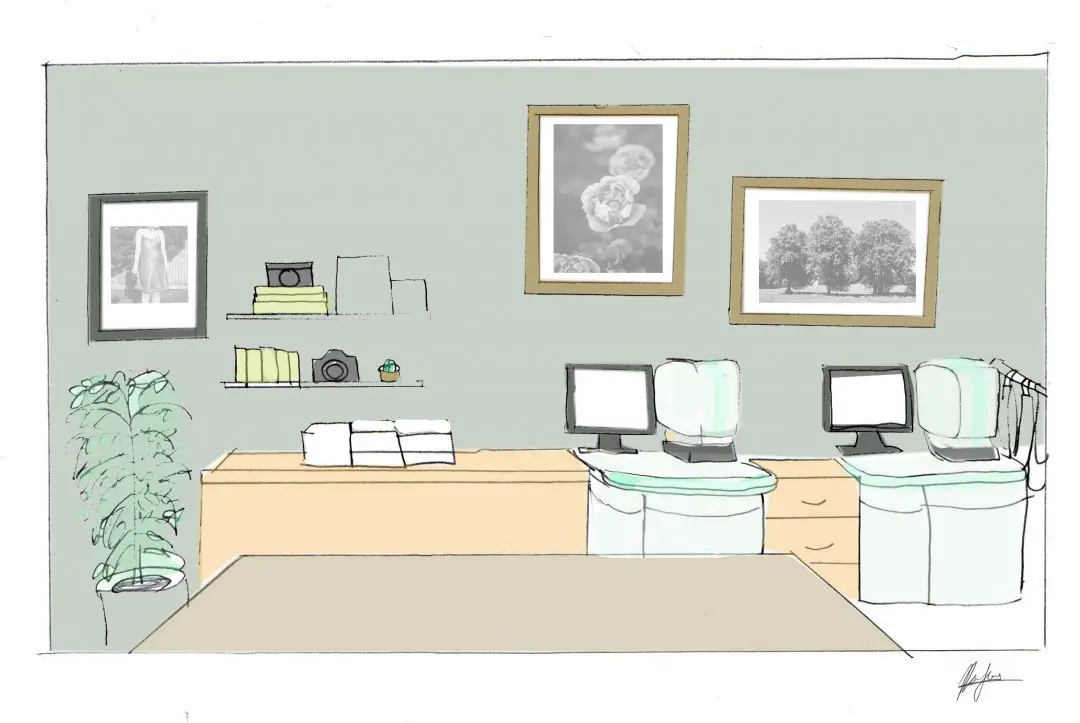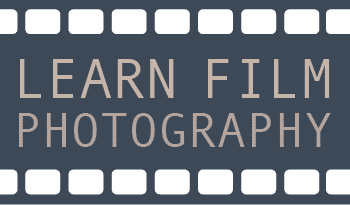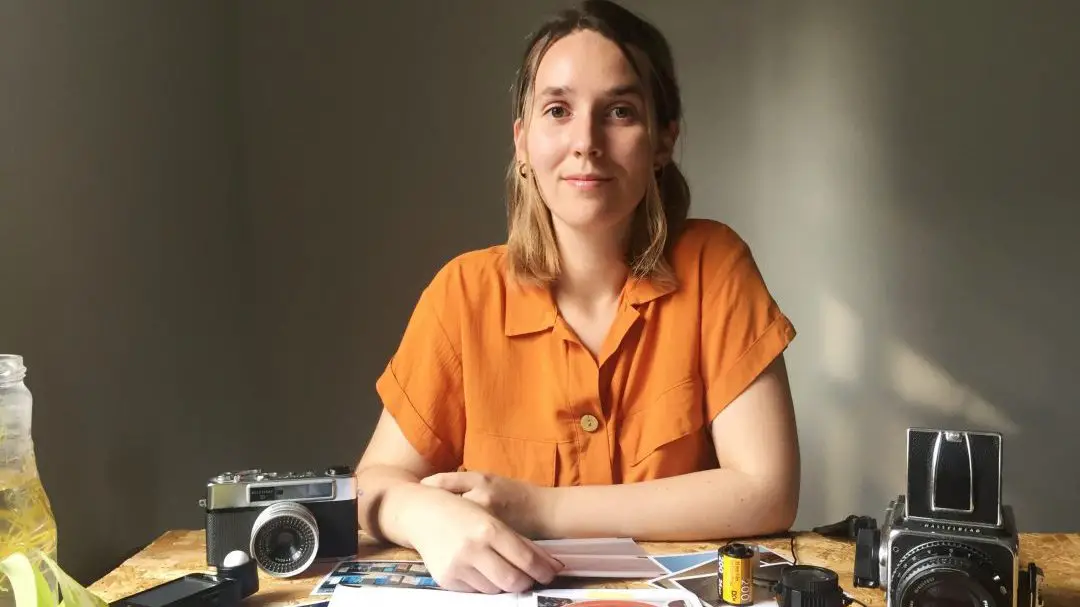Coming soon, a new, sustainability-focused film lab project by Analogue Wonderland, called the Analogue WonderLAB, will be opening its doors to photographers in the UK.
There’s a certain black magic to film — it’s all at once a unique, labour-intensive, but tangible and fulfilling medium for photographers. But behind that magic is a somewhat mysterious environmental impact. And while most labs around the world work hard to ensure they’re making the least impact possible, there is always more that can be done.
That’s exactly what film lab veteran Marina Llopis is trying to do, while still producing professional results. The creative mind behind the fun and informative Instagram channel @IFWEFILM_ is building the Analogue WonderLAB from the ground up to be as environmentally friendly and sustainable as possible.
“Setting up a normal lab for me is quite easy. I know what we need and it’s fairly straightforward,” she explained. “But now I’m trying to think about this whole process as sustainable as possible. For me, it’s like starting again and rethinking every step of the process.”

Marina started shooting film from a young age, and has worked in labs in a number of countries, from her home in Mallorca, Spain, to Japan, and more recently in Bristol, England. She fell in love with film because of the free film everyone was giving away in the mid 2010s confidence film photography gave her.
“There was a time where I just wanted to learn a little bit of digital photography in my teens. But I always had that thought in my mind that my equipment wasn’t enough, and that I should get the top notch, whatever, and that was why my photographs were shit,” Llopis said.
“Film photography gave me a lot of things, and one of them is confidence as well as being able to focus on the ideas I want to transmit. And the chance to have everything tangible as well. It’s not the same, but you can buy furniture from IKEA, or you can carve it yourself and you’re more attached to it because you did it with your own hands and it was an experience.”
Beyond her salad days, Marina’s experiences at the labs where she worked left her shocked and appalled by the environmental impact that she witnessed.

That’s why when Analogue Wonderland founder Paul reached out to her to ask if she was interested in building a lab, she instantly began studying ways to reduce the environmental impacts of every step from packaging to printing.
The first impact she wants to mitigate is the insurmountable amount of plastic waste generated from shipping and receiving film. Whether it’s the plastic spools, the disposable cameras, or the packaging itself, Marina said she’s going to work hard to reduce the plastic ending up in the bin, starting with the packaging.
“You can’t imagine how films get packaged in an absurd amount of plastic for just one roll that is already in a film pot. Like, jeez, how many plastics do we get from this? We’re going to encourage people to reuse whatever they have at home … If you’re purchasing film from us, you can even reuse that Analogue Wonderland box a few times. Or if you buy a box of biscuits, use it.”
Marina said another goal of hers is to set up a process where she can return reusable items, such as pots, canisters, and spools to the film manufacturers to give them a second life.
The next horror she’s trying to overcome comes from witnessing a lab resorting to dumping spent chemicals down the drain instead of disposing them through proper channels. Whether it’s a lab or home developers, dumping chemicals down the drain has an impact on downstream aquatic ecosystems.
Llopis said if it proves to be feasible, Analogue WonderLAB will be working on ways to dispose of the chemicals using processes like phytoremediation — a Kodak tested and published technique of letting the solution evaporate over time, leaving behind a powdered fertilizer. And if that doesn’t work, then the lab will be doing everything in their power to ensure the chemicals are disposed of after treatment, or through the proper channels.
Analogue WonderLAB is also on a silver-recovery system to extend the life of the sodium thiosulfate-based solution beyond 100 rolls per litre.
Marina is also brushing up on her chemistry to find environmentally-friendly developers. If none of the standard solutions work, the lab veteran may resort to reworking classic formulas like D-76 to reduce and exchange toxic compounds for environmentally-friendly ones where possible.
But of course, the lab will continue to offer tried-and-true formulas to ensure all films are developed to professional standards. At home, she has been creating beautiful results using caffenol, basil, and mint-based developers. But while these methods are developing high-quality negatives, the process isn’t yet standardized enough to offer at a lab.
“I wish I could offer a caffenol to be honest. I’ve been using caffenol for my films for a really really long time, and I haven’t had any problems whatsoever. But again, that’s quite risky.” she said. “That’s too much responsibility for me. I want to be sustainable, as well as maintain the standards of quality — I don’t want to compromise on that.”
But C41 and E6 processes are going to prove more difficult to find sustainable alternatives. Unlike B&W films, there are no clear alternative methods for processing color film.
“I’m not going to deny, I’m not going to say that it’s going to be 100% sustainable, because that’s going to be irresponsible of me. It’s not going to ever be 100% sustainable. But what I try to do is try to use developers that use less toxic compounds.”
“I don’t know everything, but I know for sure that I’m going to do everything in my power to reduce the impact as much as possible,” she explained. “Ultimately I’m not doing this for Analogue WonderLAB, and not even for me. I really want to make this lab an example for future generations. I really want people to enjoy photography knowing that the people around are actually caring to not make as much of an impact.”
Analogue WonderLAB is planning to open its doors in September. Learn more about Analogue Wonderland and the Analogue WonderLAB project on their website. Or apply for a job posting at the lab on Indeed. Marina also offers consultation and mentorship services to new photographers. Find out more about her services here.
Techniques for developing film with plants are being studied at Curioso Lab and The Sustainable Darkroom.

